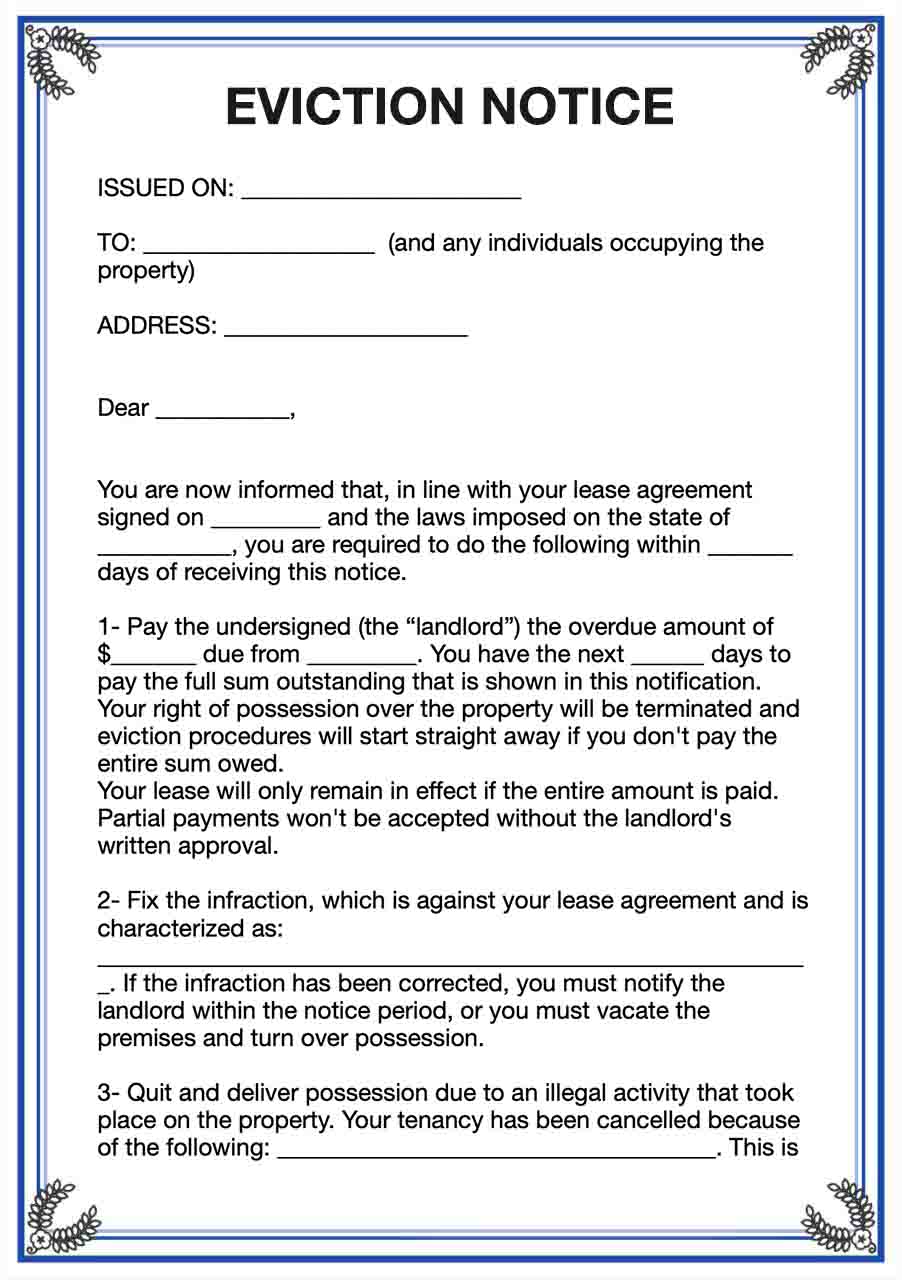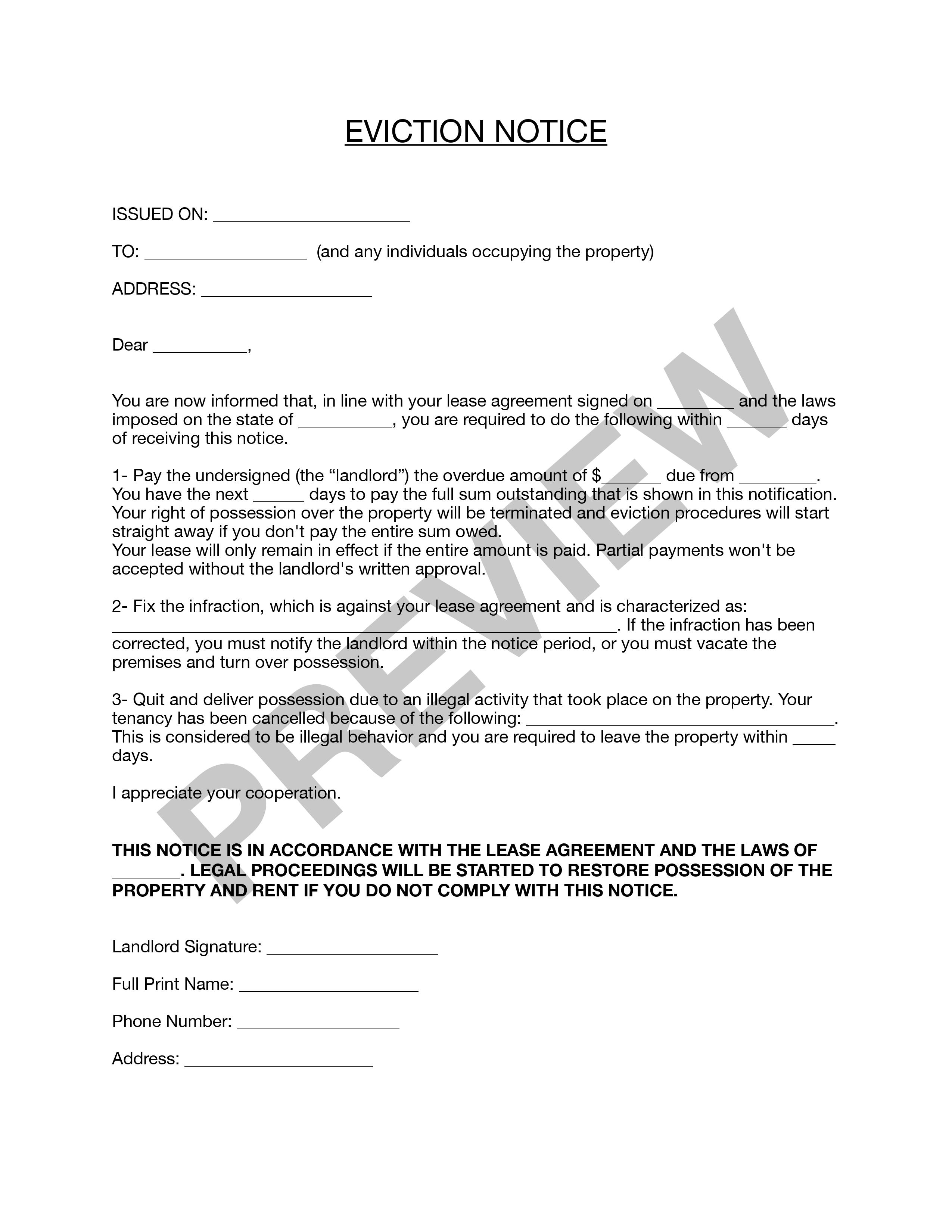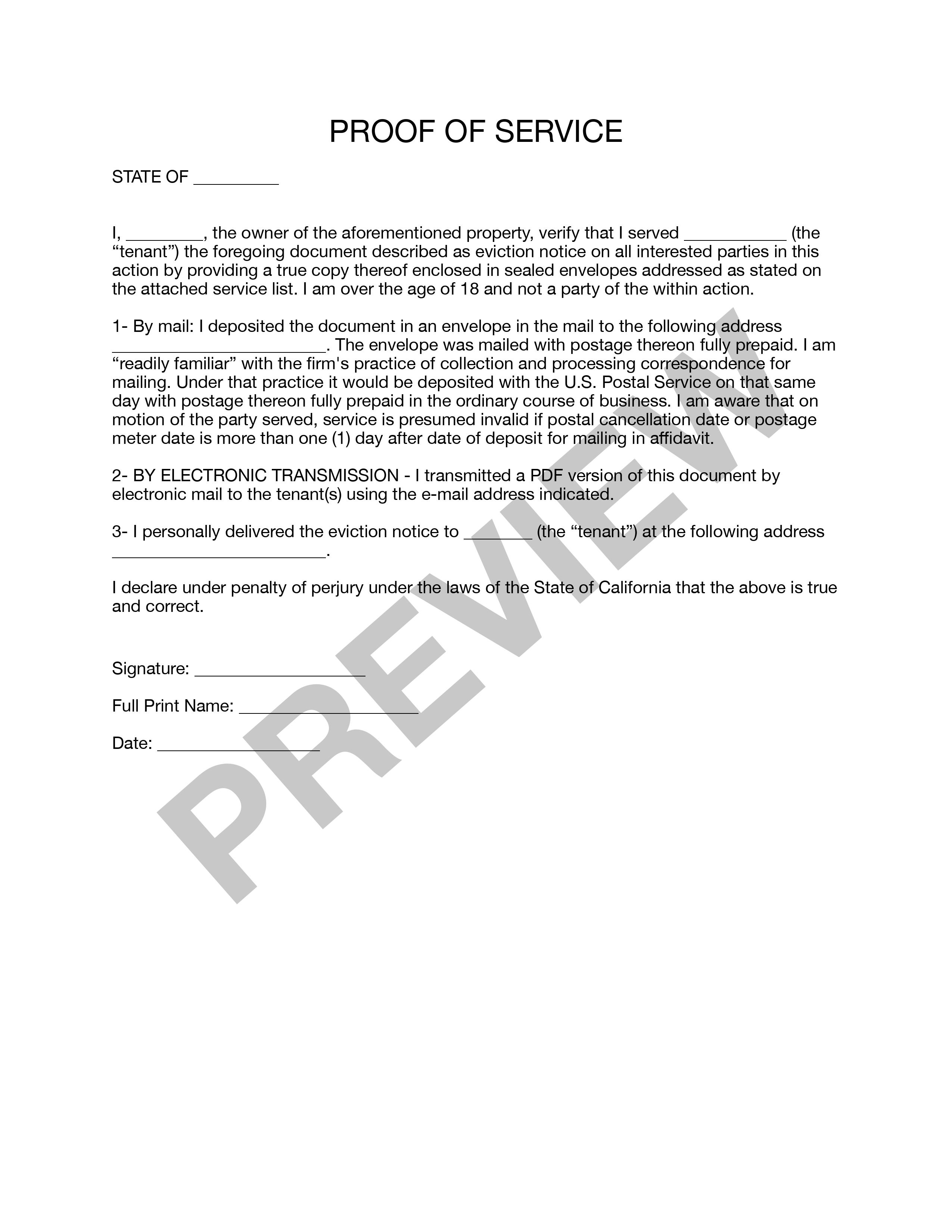Last Updated February 2023
What is an Eviction Notice?
An eviction notice is a legal document given by a landlord to a tenant to inform them that they must vacate the rented property within a certain time frame. The notice typically includes the reason for the eviction, such as failure to pay rent or violation of lease terms, and the date by which the tenant must move out.
The notice is a required step in the eviction process and must be given to the tenant before legal action can be taken to remove them from the property. The specific requirements for an eviction notice vary depending on the state or country in which the property is located and the terms of the rental agreement.
Most common reasons to evict a tenant
The most common reasons for a landlord to evict a tenant include:
-
Non-payment of rent: This is one of the most common reasons for eviction. If a tenant fails to pay rent on time, the landlord may issue an eviction notice.
-
Violation of lease terms: A lease agreement typically outlines specific rules that a tenant must follow, such as not allowing pets or not making too much noise. If a tenant violates these terms, the landlord may issue an eviction notice.
-
End of lease: If a lease agreement is ending, a landlord may choose not to renew it and ask the tenant to vacate the property.
-
Illegal activities: If a tenant engages in illegal activities on the property, such as drug use or selling, the landlord may issue an eviction notice.
-
Damage to the property: If a tenant causes significant damage to the property, the landlord may issue an eviction notice.
-
Holdover tenancy: If a tenant remains on the property after the lease agreement has ended without the landlord's consent, they may be evicted for "holdover tenancy".
It's important to note that the specific reasons for eviction may vary depending on the laws of the state or country in which the property is located, as well as the terms of the rental agreement.
Who needs an Eviction Notice?
In general, an eviction notice is given by a landlord to a tenant who has violated the terms of a rental agreement or lease, and is therefore subject to eviction. The purpose of an eviction notice is to inform the tenant of the landlord's intention to take legal action to remove them from the property, and to provide the tenant with a deadline by which they must vacate the property.
The need for an eviction notice can arise in a variety of circumstances, such as when a tenant fails to pay rent, violates the terms of the lease, or causes damage to the property. In such cases, the landlord may need to give the tenant an eviction notice in order to initiate legal proceedings to remove the tenant from the property.
It's important to note that the specific requirements for an eviction notice, including the form of the notice and the amount of time given to the tenant to vacate the property, may vary depending on the laws of the state or country in which the property is located.
What should I include in my Eviction Notice?
In general, an eviction notice should include the following information:
- The date the notice is being given.
- The full name(s) of the tenant(s) and any other occupants of the property.
- The address of the rental property.
- The reason for the eviction and the specific lease violation that has occurred (e.g., non-payment of rent, violation of lease terms, etc.).
- The date by which the tenant must vacate the property.
- The consequences of failing to comply with the eviction notice, including the possibility of legal action.
- The name, address, and phone number of the landlord or their representative.
It's important to ensure that the eviction notice is clear, concise, and free from any discriminatory language. In addition, you should make sure to follow the requirements of your local laws and regulations regarding eviction notices, including any required formatting, notice periods, and delivery methods. It is also recommended that you keep a copy of the notice for your records and consider seeking legal advice if you have any questions or concerns about the eviction process.
Frequently Asked Questions
The timeline for evicting a tenant can vary depending on the laws and regulations of the state or country in which the rental property is located. In some cases, the eviction process can take as little as a few weeks, while in others, it can take several months or longer.
Yes, in many cases, a tenant may be able to fix or cure the violation that led to the eviction notice and avoid being evicted. For example, if a tenant has not paid rent, they may be able to catch up on their payments or enter into a payment plan with their landlord. If the violation is related to a breach of a lease term, the tenant may be able to correct the issue and ensure it does not happen again.
In some cases, the landlord may be willing to work with the tenant to find a solution to the issue that led to the eviction notice. For example, the landlord may be willing to waive late fees or extend the deadline for the tenant to vacate the property if they are making a good faith effort to address the issue.
It's important for the tenant to communicate with the landlord and take action to address the issue as soon as possible after receiving the eviction notice. If the tenant is able to resolve the issue and the landlord agrees not to pursue eviction, it's important to get any agreements in writing to protect the tenant's rights.
The number of days' notice required to evict a tenant can vary depending on the laws and regulations of the state or country in which the rental property is located.
In general, most states in the US require landlords to provide tenants with a notice of at least 30 days before terminating a month-to-month tenancy. However, in some states, such as California, the notice period may be as long as 60 days.
For evictions due to lease violations or non-payment of rent, the notice period may be shorter, typically ranging from 3 to 7 days.
If the eviction is straightforward, such as in cases of non-payment of rent, a landlord may be able to handle the eviction process without a lawyer. However, if the tenant contests the eviction or if the situation is more complex, such as if the tenant claims that the eviction is retaliatory or discriminatory, it may be advisable to seek legal advice.
In addition, some states may require landlords to have a lawyer represent them in court during the eviction process. It's important for landlords to check the laws and regulations of their state or country and to seek legal advice if they are unsure about the eviction process or their legal obligations.
If you want to evict an individual tenant from a multiple tenants lease, it can be more complicated than evicting a single tenant. In most cases, the eviction will need to be based on a violation of the lease agreement, such as non-payment of rent or another lease violation.
When evicting an individual tenant from a multiple tenants lease, it's important to ensure that the eviction is based on valid grounds and does not violate any fair housing laws or regulations. In addition, if the lease agreement is jointly held by multiple tenants, the other tenants may still be responsible for paying rent and complying with the terms of the lease, even after one tenant is evicted.


